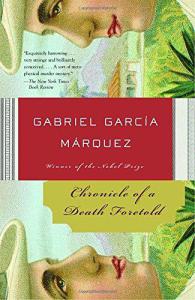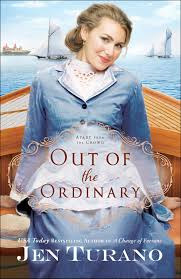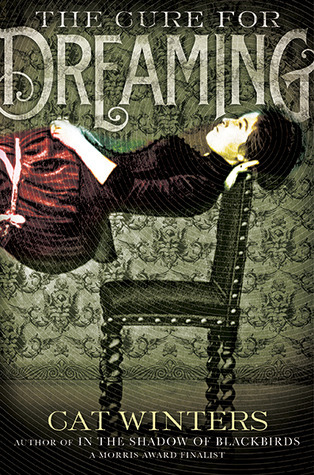Did you ever an swer the question: What would your favorite reading day look like? I occasionally think about this, especially when I’m having a decidedly unfavorite writing day and all I want to do is escape into someone else’s really wonderful story.
swer the question: What would your favorite reading day look like? I occasionally think about this, especially when I’m having a decidedly unfavorite writing day and all I want to do is escape into someone else’s really wonderful story.
My answer to that question varies, but this is one of my favorites: I’m on a comfy sofa, wrapped in a warm blanket, in an old library with soaring ceilings and thousands upon thousands of books stacked to the rafters. You know the kind of place, where you breathe in the smell of yellowing pages and well-worn book bindings. And seated on an upholstered wing chair across from me is a handsome man, a native Spanish speaker, with a well-trained voice (think Placido Domingo in the heyday of his opera singing career). We’re sipping Cognac. And this lovely man is reading Carlos Ruiz Zafón’s book Shadow of the Wind to me. In the original Spanish.
Yes, it’s a very weird and specific fantasy. But it gets even weirder because, it turns out, I don’t read, speak, or even understand more than a handful of Spanish words.
That’s the beauty of books in translation. We don’t have to be fluent in another language to luxuriate in amazing storytelling by authors like Zafón or the author who started me down the path of love of modern Spanish literature, Gabriel García Márquez. And because I love so many of these books in English, I can only imagine how beautiful they must sound in their original Spanish. If you’re not already a fan of Spanish books in translation, come hither and let me try to convert you by recommending a few of my favorites.
Gabriel García Márquez was a master of the opening line. In his books, the opening tends to summarize the next hundred or so pages of the (typically short) book, but even so, the reader is entranced and wants to keep reading to find out how? and why? and why the hell can’t we stop this terrible thing he told us will happen in the first line of the book? The first book of his I read was Chronicle of a Death Foretold*. Therefore, the first line of his I ever read was:
“On the day they were going to kill him, Santiago Nasar got up at five-thirty in the morning to wait for the boat the bishop was coming on.”
The rest of the book, told from the perspective of a detective re-investigating the murder 27 years later, explains how and why, an hour later, this attractive, well-liked young man is murdered.
The first line of his very famous book One Hundred Years of Solitude begins at the end of the story with:
“Many years later, as he faced the firing squad, Colonel Aureliano Buendia was to remember that distant afternoon when his father took him to discover ice.”
Another famous book and my personal favorite of his, Love in the Time of Cholera, is the story of unrequited love, lost and found across decades, and begins with:
“It was inevitable: the scent of bitter almonds always reminded him of the fate of unrequited love.”
Let me tell you, as someone struggling to write an opening scene this past week, I know finding opening salvos like those is a talent unto itself. Keeping up that level and intensity, which Márquez seems to do effortlessly, is absolutely masterful.
After learning of my love of Márquez books, a friend and fellow writer asked if I’d read anything by Arturo Pérez-Reverte. I had not, but I quickly remedied that. On my friend’s recommendation, I started with The Flanders Panel**, then moved onto The Fencing Master (my personal favorite of his books), and The Club Dumas, which was made into an…interesting movie called The Ninth Gate, starring Johnny Depp. (I recommend the book over the movie, but then again, I usually do.) Less lyrical than García Márquez’s works, The Flanders Panel didn’t grip me from the first page in the same way, but by the end of the first chapter, I was hooked. Pérez-Reverte’s books are dark, mysterious, and sometimes twisted tales. Which reminds me, I really must read another one very soon.
I can’t recall where I first heard about Carlos Ruiz Zafón’s work, but after reading The Shadow of the Wind† , I waited impatiently for the second book set in a dark and mysterious version of Barcelona, the backdrop of Zafón’s Cemetery of Forgotten Books series. Take that in for a minute: the cemetery of forgotten books. It’s a hidden library where only the most stalwart of book lovers ever enter, each to choose one forgotten book to preserve and protect. Throw in secret police, clandestine love affairs, and an oh-so-mysterious author, and you’ll begin to understand the allure of these richly-textured books. I just recently purchased books 3 and 4 in the series, and am keeping them as a reward for getting my own writing done (or so I tell myself, although I might sneak a page here and there before writing some days).
After I’d fallen in love with the works of Márquez but before I’d discovered Pérez-Reverte and Zafón, I learned of Daisy Zamora. Zamora is not a novelist. She is a Nicaraguan poet, the voice of a generation for her country, and was a fighter in the Nicaraguan Revolution of the 80s. I am not a person particularly knowledgeable about poetry, but after hearing Zamora interviewed on NPR’s Fresh Air program in the mid-90s, I was hooked. The next time I got to a book store (that’s where we had to go to buy books back in the day), I picked a copy of the only collection of her poetry they had, called Clean Slate.
Zamora’s poetry is wide-ranging but focuses on women’s experiences, whether those involve pregnancy, childbirth, marriage, and family, or the role of and particular dangers to women in wartime. The poems also range in length from a few lines to many pages long. Her ability to conjure an image, a sense of place, and underlying emotion is uncanny. As an example, this is one of my favorite poems, called Hemos ido juntando (We’ve Been Gathering)††:
We’ve been gathering days like words.
Luminous musical words, dark words,
sad and solitary words, closed words.
Everyday words, word-days
and day-words.
We’ve been gathering days like words.
Little phrases of strange sounds
looking for their meaning
finding them a place
in the immense song
of this everyday love.
I’m not sure why exactly I’ve fallen in love with these translated works. Maybe there’s something about the tradition of storytelling in the Spanish language that speaks to me. Maybe it’s the lilt and poetry of stories written in a Romance language that remain intact, even in translation. Maybe it’s that the cost of translating books and the difficulty of breaking into an already crowded English-language market means only the very best books (however those are chosen) get translated. I do know that as much as I love Nordic Noir (see: Nancy’s plan to someday write that dark mystery set in Copenhagen), the translations I’ve read from Scandinavian languages don’t touch and haunt me in the same way.
There are more Spanish-speaking authors whose books I’ve yet to read but who are on my radar, like Rosa Montero, Sónia Hernández, and Ildefonso Falcones. In the meantime, I’m going to curl up on my comfy sofa with a warm blanket, a few cats, and maybe even a Cognac, and read books 3 and 4 of the Zafón series to myself. In English, of course.
Do you have an affinity for books translated from some other language? Are you lucky enough to be able to read any non-English literature in its original language? Any book recommendations, Spanish or otherwise, for a writer in desperate need of a reading break? (Totally asking for a friend.)
*Gabriel García Márquez books translated by Gregory Rabassa; **Arturo Pérez-Reverte books translated by Margaret Jull Costa; †Carlos Ruiz Zafón books translated by ;††Daisy Zamora poetry translated by Margaret Randall and Elinor Randall. Share this:




